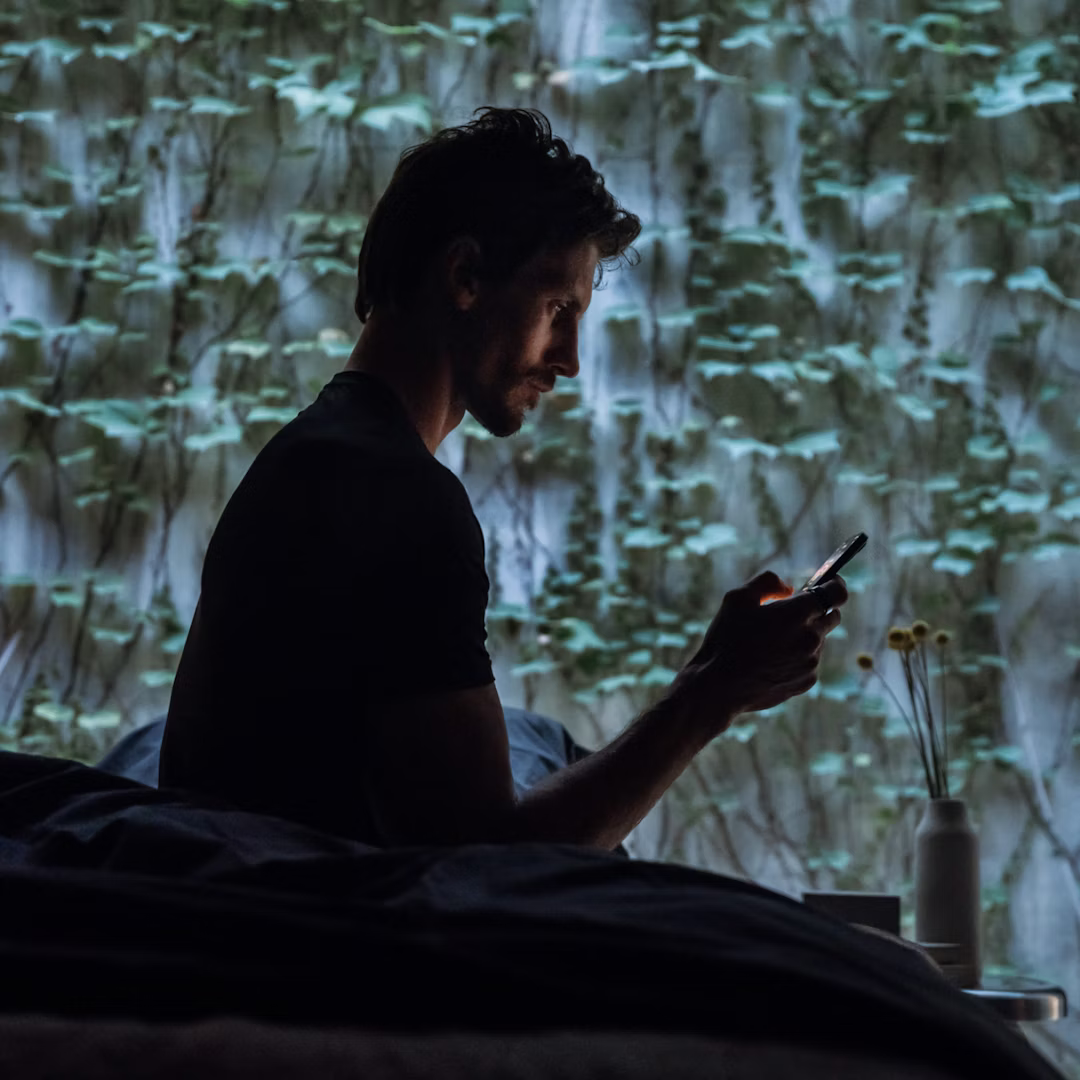The Huberman Effect: How Podcast-Savvy Guests Are Reshaping Luxury Wellness
Modern, tech-savvy wellness travellers are on a quest for optimisation…
You may have noticed a new breed of guest emerging in luxury hotels. Armed with advanced knowledge of circadian rhythms, neuroplasticity, and cutting-edge nutritional science, these aren't your typical wellness warriors - these guests are on a quest for optimisation.
The era of the podcast-educated wellness seeker is upon us, and spearheading this shift is Dr Andrew Huberman, the Stanford neuroscientist whose podcast has become a phenomenon. Huberman's knack for translating complex science into actionable advice has made the Huberman Lab the #1 health podcast in the world, and created a legion of followers with heightened expectations of luxury wellness.
Having access to science-backed information from podcasts like Huberman's and other popular media is empowering consumers to go deeper into wellness and make more educated choices about their wellbeing. With a preference for evidence-based treatments over traditional spa and wellness offerings, they make decisions based on scientific credibility rather than luxury positioning alone.
The impact of this shift is rippling across the luxury hospitality sector. And while spa and wellness may be the epicentre, hotel brands are rapidly trying to refine their offerings to capture these guests.
Stanford neuroscientist Dr Andrew Huberman has the #1 health podcast in the world
The Big Business of Modern Wellness
A fundamental evolution in how affluent consumers approach and invest in their wellbeing is currently taking place. Particularly with fitness, recovery, nutrition and skincare, consumers are now more likely than ever to research ingredients, verify health claims, and select products and services that demonstrate measurable benefits.
That’s where Huberman and others like him come in.
The content ecosystem built around wellness is sprawling and audiences can’t get enough of it. As consumers move on from the extreme diets, celebrity-endorsed beauty hacks and unproven supplements of yesteryear, the popularity of informed, science-backed content creators has exploded. In response, new brands focused on science-backed products have sprung up and built momentum, forcing established brands to reposition themselves to stay relevant.
Consider devices like the Oura Ring and Whoop Strap, which have become popular among consumers seeking data-driven insights into their sleep stages, recovery, and overall health metrics. Or skincare, where evidence-based brands such as The Ordinary and Paula's Choice have disrupted the industry by offering products with clinically proven efficacy.
The Oura Ring's unique selling point is its comprehensive sleep and health tracking
Similarly, fitness equipment manufacturers like Peloton and Technogym have integrated advanced analytics and personalised training programs into their offerings, attracting consumers interested in evidence-based fitness regimens that go beyond conventional workouts. And sleep technology has taken off, with companies like Sleep Number and Eight Sleep developing beds that adjust firmness based on biometric feedback and integrate sleep tracking technology to offer users insights into their sleep quality.
Look up any of these products on Google or jump onto YouTube, TikTok or Instagram and you’ll find a never-ending stream of content either directly related to the product or addressing the underlying science behind it. Podcasts take this to the next level. As long-form content, they go deeper, citing the latest research and tapping influential experts to decode the science and make it easily digestible for a mass audience. Just take Huberman’s deep rest protocol, which has close to 6 million views on YouTube alone. Or Dr Peter Attia’s book "Outlive”, which has sold over 2 million copies and dominated podcast discourse about longevity for the past year.
Implications for Luxury Hotels
Four Seasons Beverly Hills has a dedicated Wellness Floor and Well Office with state-of-the-art wellness technology
The democratisation of wellness knowledge through podcasts and digital media isn't just driving wellness tourism growth - it's fundamentally reshaping guest expectations and behaviours. Today's luxury wellness seekers arrive armed with a sophisticated understanding of wellness concepts, sparking two parallel trends in luxury hospitality: the emergence of wellness-native concepts and the strategic evolution of established luxury brands.
New wellness-centric properties are setting fresh benchmarks for science-backed hospitality. The Equinox Hotel in New York exemplifies this approach, with their Regeneration Rooms featuring advanced sleep systems, circadian lighting, and soundproofing technology. Their integration of performance recovery services like cryotherapy and infrared saunas directly addresses the optimisation-focused mindset of podcast-educated guests.
Established luxury brands are responding with equally compelling offerings. Miraval Resorts, part of the Hyatt portfolio, demonstrates how traditional wellness can evolve to meet these new expectations. Its mindfulness-based wellness approach now incorporates evidence-based recovery treatments and sleep enhancement programs. At the flagship Arizona property, the Life in Balance Spa combines traditional treatments with modern recovery techniques, while its Sleep Well programming addresses the growing interest in science-based sleep optimisation. Miraval’s success shows how established brands can thoughtfully integrate contemporary wellness science while maintaining authentic wellness traditions.
Miraval Arizona Resort and Spa, a Hyatt hotel, is blending traditional spa treatments with modern wellness practices
Six Senses has taken a portfolio-wide approach, implementing biometric screening and sleep programs across their properties to demonstrate how science-backed wellness can be seamlessly integrated without compromising luxury positioning. Meanwhile, Four Seasons Beverly Hills has dedicated an entire floor to wellness, featuring rooms equipped with everything from air purification to meditation technology.
The key learning from these examples isn't about technology adoption alone - it's about meeting elevated guest expectations while maintaining operational excellence. Properties succeeding in this space share common elements:
Thoughtful integration of validated wellness technologies
Partnerships with credible wellness brands and practitioners
Staff training programs that emphasise scientific literacy
Flexible programming that caters to varying levels of wellness sophistication
Clear communication of evidence-based benefits
As we look ahead, luxury properties must navigate between authentic wellness integration and avoiding "wellness washing." The goal isn't to transform every hotel into a medical facility, but to create environments where science-informed wellness enhances rather than overshadows the luxury experience.





